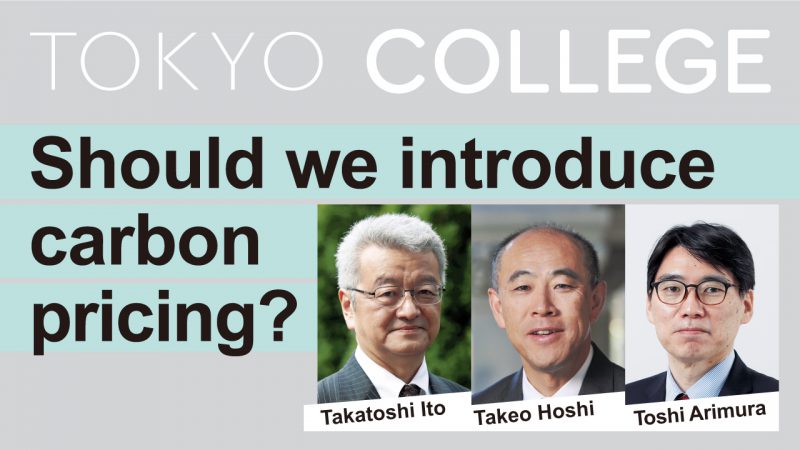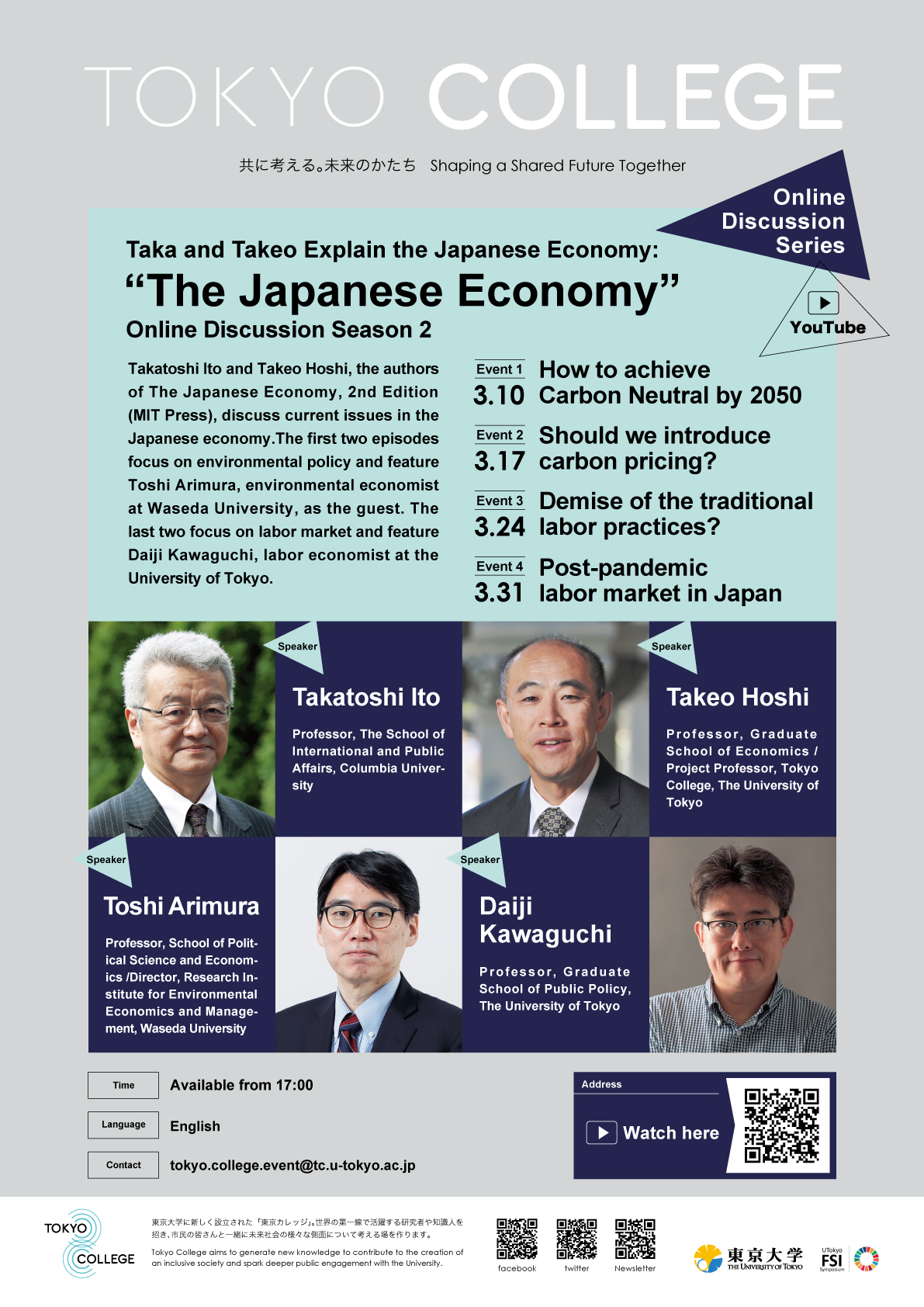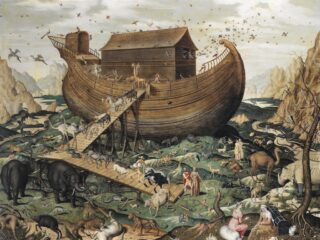“The Japanese Economy” Online Discussion Season 2 ② Should we introduce carbon pricing?

Watch second episode:
Watch 【Extra】Video for "The Japanese Economy" Online Discussion Season 2
| Date(s) | Wednesday, 17 March 2021 (Available from 17:00 JST) |
|---|---|
| Venue |
Tokyo College YouTube Channel(https://youtube.com/playlist?list=PLeE49Q0gSqn3-TaibTMDaWCN9WRwhC5oT) |
| Language | English |
| Abstract |
Takatoshi Ito and Takeo Hoshi, the authors of The Japanese Economy, 2nd Edition (MIT Press), discuss current issues in the Japanese economy. The first two episodes focus on environmental policy and feature Toshi Arimura, environmental economist at Waseda University, as the guest. The last two focus on labor market and feature Daiji Kawaguchi, labor economist at the University of Tokyo. |
| Speaker Profile |
Takatoshi Ito (Professor, The School of International and Public Affairs, Columbia University / Professor Emeritus, University of Tokyo) Takeo Hoshi (Professor, Graduate School of Economics / Project Professor, Tokyo College, The University of Tokyo) Toshi Arimura (Professor, School of Political Science and Economics / Director, Research Institute for Environmental Economics and Management, Waseda University) |
| Organized by | Tokyo College, The University of Tokyo / Outreach Partner: Columbia Business School, Center on Japanese Economy and Business |
| Contact | tokyo.college.event@tc.u-tokyo.ac.jp |

















